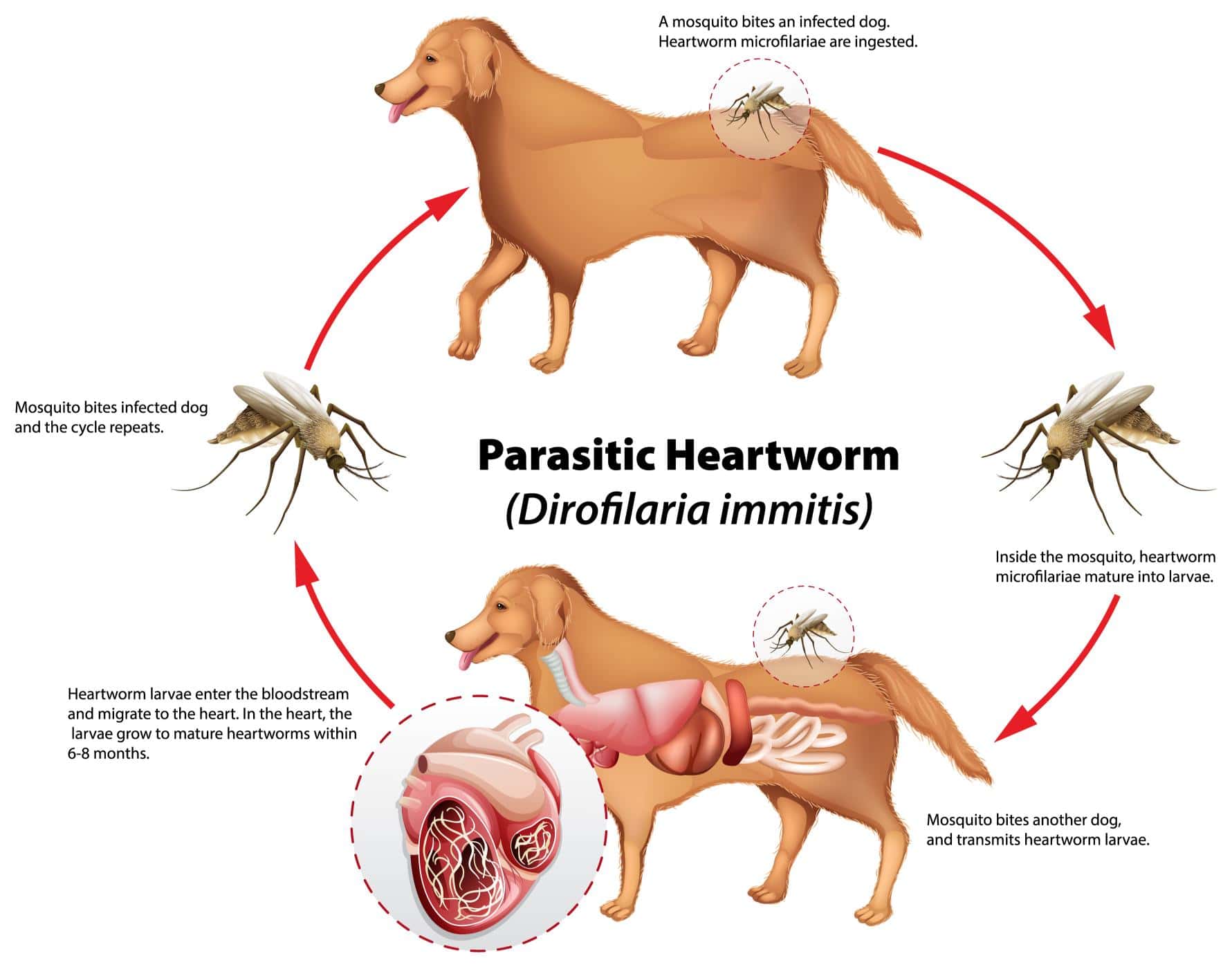Heartworm Awareness: Protecting Your Pets in Alpena from Mosquito-Borne Disease

Living by the lake has lots of upsides, but sometimes the insect population that comes along with those perks can be less-than-great. As pet lovers, our staff at Switzer Veterinary Clinic want to be sure that our fellow animal caretakers are equipped with heartworm prevention tips for the mosquito population here in Alpena, Michigan.
What Are Heartworms?
Those in animal health care are often all-too-familiar with heartworm disease in our pets. These serious parasites reside in the heart and blood vessels of canids like dogs and coyotes. They can be transmitted from their host to other unprotected animals via mosquitoes.
Microfilaria, essentially baby heartworms, ride along in the mosquito’s digestive tract after it feeds, then are injected into the next animal the mosquito feeds on. The microfilaria then make their way into the bloodstream and develop into adult heartworms over the next 5-6 months.
Heartworm disease in pets is often asymptomatic at first, but over time, the parasites can cause inflammation and damage to the heart and associated blood vessels. This can lead to symptoms including:
- Shortness of breath
- Exercise intolerance
- Coughing
- Increased respiratory rate while at rest
Untreated, affected pets can enter heart failure. While dogs are the natural host for heartworms, cats can also be affected.
Pet heartworm treatment is an option for dogs, however it is not an ideal option. By the time an infection is detected, there are often permanent changes to the heart and lungs. Treatment is also long, expensive, and uncomfortable for our patients.
Heartworm Prevention Tips
Our best defense against heartworms is to prevent them altogether. Luckily we have lots of safe and very effective options that are very good at stopping heartworm microfilaria from taking up residence in your pet.
Our pet heartworm prevention tips for pets in Alpena include:
- Discussing with us which prescription heartworm prevention option is right for your pet and family
- Allowing us to test your pet annually for heartworm disease so that we can detect and treat sooner
- Administering prevention year-round as prescribed
- Considering pet safe, FDA or EPA approved, mosquito repellant for your pet
- Eliminate standing sources of water that foster mosquito populations
While nothing is 100%, taking these measures are essential steps to preventing heartworm infection in our beloved pets. Contact us today if you have questions or if you are unsure if your pet is protected. We are here to help.

